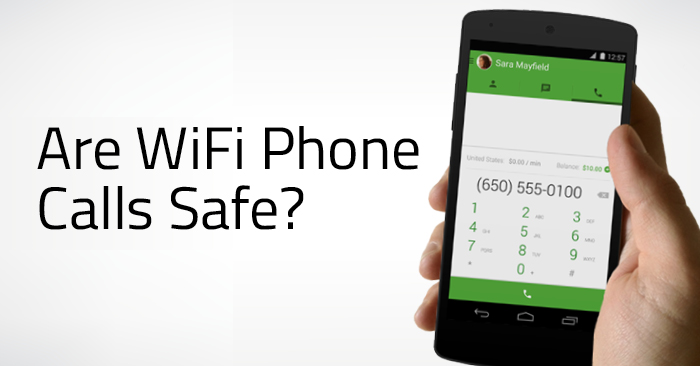How to get a Finnish IP address
The easiest way to improve your digital privacy is to switch your IP address using a VPN. We’ll …

In fewer than 10 years, smartphones have revolutionized how we interact with the world and with each other. Carrying a powerful computer in your pocket has countless advantages, but what about the risks? Mobile innovation is moving so fast, driven by a voracious market, that many consumers are jumping to adopt new technologies without stopping to consider the potential risks to their data privacy. One of the latest such developments is WiFi phone calling capability. Here are some things to consider before embracing this relatively new possibility.
Simply stated, WiFi calling means you can send and receive phone calls and texts over a WiFi network, rather than relying on a conventional cellular network. The ability to make WiFi calls has been around for a while, but was limited to services like Skype and O2, which don’t integrate well with callers’ existing phone numbers or messaging systems.
Recently, mobile giant Apple and carrier T-Mobile have joined smaller companies in embracing this technology, so customers can potentially start using it without realizing anything has changed. If you have an iPhone 6 or are a T-Mobile customer, you may already be making calls via WiFi, and the technology will be adopted by more carriers as time goes on.
One of the biggest appeals of WiFi calling is that it provides an alternative to cellular technology and can save you money! For people who struggle with spotty cellular coverage, either because they live in a rural area or because they just ended up with the wrong combination of carrier and geographic area, it’s great news. WiFi calls often don’t count against your allotment of cellular minutes, so you can talk as much as you like over a WiFi connection without worrying about plan overages and extra charges.
Mobile carriers are still working out a few of the kinks. If you’re on a call while in transit, and you lose your WiFi signal, the call may be dropped while your phone tries to connect to a cellular network. But the bigger disadvantage is something far less obvious than a dropped call — it’s the potential security risk.
Whenever you send data by WiFi, the security of your information is at the mercy of the network. Public WiFi networks are havens for phishers and others who lie in wait for the opportunity to latch on to an unsuspecting user’s connection and steal their personal information. If you were to use a WiFi calling app that did not properly encrypt your data while on an unprotected public network, you would be wide open to information theft.
But even if you’re using a secure network, you’re putting a lot of faith in your cellular carrier. Major carriers encrypt voice data so it cannot be accessed by outside parties; but one vulnerability in the flow of information is all it takes. In 2013, two graduate students at the University of California, Berkeley discovered that T-Mobile’s WiFi calling feature did not correctly validate the security certificate on the server side, creating an opportunity for a “man-in-the-middle” attack. This kind of attack involves hackers creating a fake security certificate and tricking the service into thinking it is connecting with the right target; in this case, T-Mobile.
Fortunately, the inherent risks associated with WiFi calling don’t mean you need to steer clear of this convenient and money-saving technology. Consumers can take measures to protect themselves against unsecured networks and unanticipated security failures by using a product like Hotspot Shield.
Hotspot Shield works by creating a Virtual Private Network, or VPN, through which your data passes. You may recognize VPN technology as something used by employers to allow remote workers to access the secure company network. However, it has evolved into a popular solution for savvy users who want to ensure their data privacy on a personal, day-to-day basis. You also won’t have to struggle with key fobs and complicated software installations like you may have done with a corporate VPN. With Hotspot Shield, creating your own VPN is as easy as downloading a simple file.
Hotspot Shield Elite gives you unlimited and unrestricted access to your favorite content and also enables you to protect up to 5 devices simultaneously (Android, iOS, Mac, Windows). Upgrade to Elite now to start protecting all your family’s devices and unlock up to 9 virtual locations to access geo-restricted content such as Netflix, ITV player, BBC iplayer, HBO Go, Yahoo Screen and many more.
WiFi calling is an exciting development for people who want an alternative to cellular networks. Happily, you can take advantage of this technology without compromising your mobile security.
